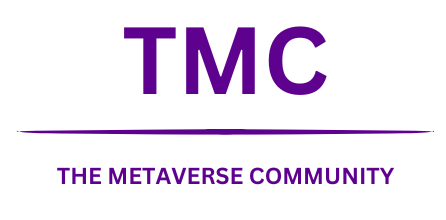The Metaverse, a digital universe merging virtual reality (VR), augmented reality (AR), and artificial intelligence (AI), is poised to revolutionize the healthcare industry. This immersive realm promises transformative changes for patients, healthcare professionals, and the entire healthcare ecosystem, including healthcare facilities and specialists, ushering in a new era of innovation and patient-centered care. By leveraging metaverse technologies, healthcare systems can enhance the quality and accessibility of healthcare services, ultimately improving health outcomes. The capabilities of such advanced technologies provide unprecedented accuracy in diagnostics and treatments, ensuring that healthcare interventions are precise and effective.
Transforming the Healthcare Landscape: Technologies and Use Cases
- Revolutionizing Surgical Training and Planning: Surgeons can leverage VR technologies to practice complex procedures in a risk-free environment, improving their skills and precision. AR can overlay critical information like patient vitals and anatomical structures during surgery, enhancing decision-making and minimizing errors.
- Personalized Treatment Plans and Rehabilitation: The Metaverse enables the creation of personalized treatment plans based on individual patient data and digital twins, simulating treatment outcomes and optimizing therapies. Patients can engage in immersive VR therapies for pain management, physical rehabilitation, and mental health conditions, enhancing engagement and improving outcomes.
- Advancing Medical Education and Training: Medical students can explore virtual anatomy models, participate in simulated surgeries, and learn through interactive scenarios, enriching their educational experience and accelerating their learning curve. This immersive training fosters a new generation of healthcare professionals equipped with cutting-edge skills.
- Transforming Telemedicine and Remote Care: The Metaverse takes telemedicine to the next level, enabling immersive consultations, remote monitoring of patients’ vital signs, and even AI-assisted diagnoses. This expands access to care for patients in remote areas and improves the efficiency of healthcare delivery.
Reimagining Healthcare Delivery: Platforms, Services, and Solutions
The Metaverse offers a groundbreaking opportunity to reimagine healthcare delivery. Imagine patients seamlessly accessing virtual clinics on a dedicated healthcare Metaverse platform for consultations with doctors, receiving personalized treatment plans based on their digital twins, and engaging in immersive therapies from the comfort of their homes. Remote monitoring services powered by AI can provide real-time health insights to clinicians, enabling proactive interventions and reducing hospital readmissions. The Metaverse also opens doors for global collaborations among healthcare professionals, allowing participants, such as doctors and specialists, to share experiences, knowledge, and diagnostics through virtual simulation activities. This facilitates communication and improves access to specialized care for patients in underserved areas. This paradigm shift in care delivery promises to enhance patient engagement, improve outcomes, and make healthcare more accessible, convenient, and patient-centric. Additionally, blockchain can be integrated to ensure compliance and secure patient data within these digital environments. The interactivity brought by avatars and 3D simulations can greatly reduce patient anxiety by providing a more relatable and engaging healthcare experience.
Hospitals and Doctors Embracing the Metaverse
Hospitals are beginning to explore the potential of the Metaverse to improve patient care and operational efficiency. Virtual reality simulations can help doctors practice procedures, while augmented reality can provide real-time information during surgeries. Headsets integrated with AR and VR can provide detailed anatomical perspectives during complex operations, enhancing the precision and safety of surgical interventions. This equipment and technology can also be used to create virtual hospitals, where patients can receive care from anywhere in the world. Doctors can leverage the Metaverse to collaborate with colleagues, share knowledge, and access the latest research about diseases, diagnostics, and interventions. These innovations foster an environment where physicians can continually enhance their skills and treatments, ultimately improving patient outcomes.
Navigating the Path Forward in the Healthcare Metaverse
- Collaboration and Framework Development: Healthcare industry leaders, technology companies, clinicians, and researchers must collaborate to establish a robust framework for Metaverse implementation. This framework should address ethical considerations, data privacy, interoperability, and standards.
- Investment and Infrastructure: Significant investment in infrastructure, hardware, software, and training will be required to bring the Metaverse to fruition in healthcare. Investors can play a crucial role in driving this transformation by supporting innovative startups and established healthcare providers.
- Addressing Uncertainty and Building Trust: The adoption of the Metaverse in healthcare faces challenges, including regulatory uncertainty and concerns about data security. Building trust among patients and practitioners will be essential. Transparency, education, and strong privacy measures are key to mitigating these concerns.
Addressing Challenges and Limitations
While the potential of the Metaverse in healthcare is undeniable, it’s crucial to acknowledge the challenges and limitations. The high cost of implementation, potential for exacerbating existing health disparities, and concerns regarding data privacy and security are all significant hurdles to overcome. Furthermore, there is a need for robust ethical guidelines and regulations to ensure responsible and equitable use of this technology. Addressing these challenges will require collaboration among stakeholders, including healthcare providers, technology companies, policymakers, and patients themselves. The healthcare system must adapt to these changes to fully harness the potential of metaverse technologies, ensuring the prevention of any misuses or ethical breaches.
The Future of Healthcare in the Metaverse
The Metaverse has the potential to reshape the healthcare industry, making it more accessible, personalized, and effective. Imagine a world where patients can access expert care from anywhere, where chronic conditions are managed proactively, and where preventive care is prioritized. While challenges remain, the potential benefits are undeniable. By embracing innovation, fostering collaboration, and investing in the necessary infrastructure, we can unlock the full potential of the Metaverse in healthcare and create a healthier future for all individuals. Through the integration of avatars and immersive environments, the Metaverse can transform the way therapy and medicine are administered, ensuring a more holistic and effective approach to patient care across healthcare systems. This evolution also encompasses human-centered design, which ensures that all interventions and applications are tailored to the unique needs of each patient, thereby enhancing the overall diagnosis and management of various health conditions.




